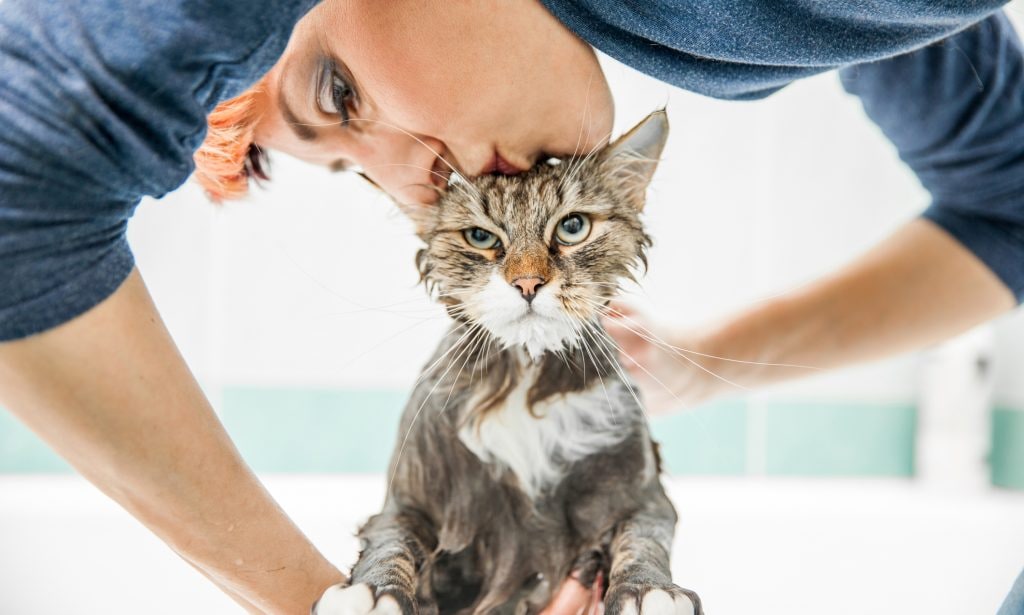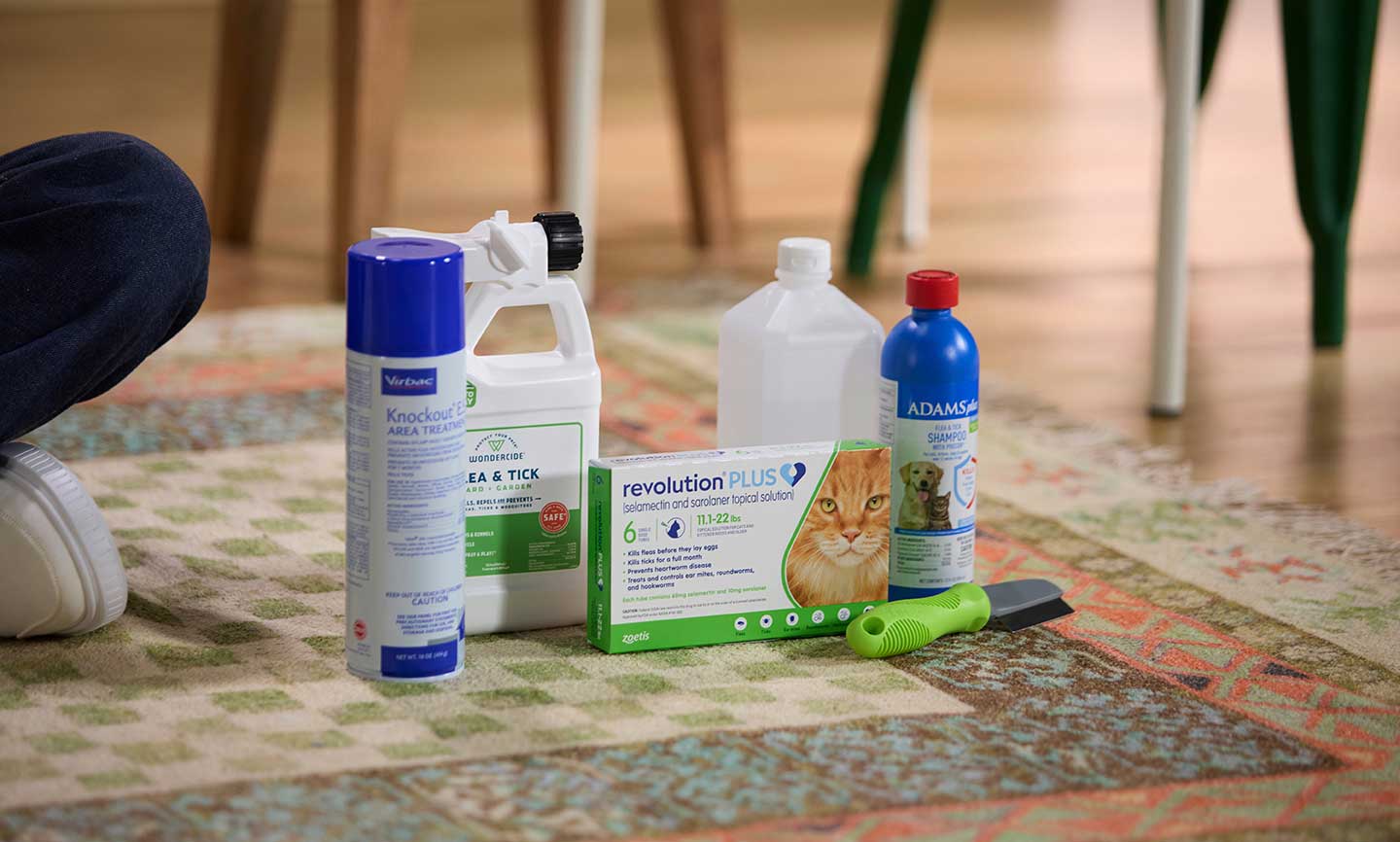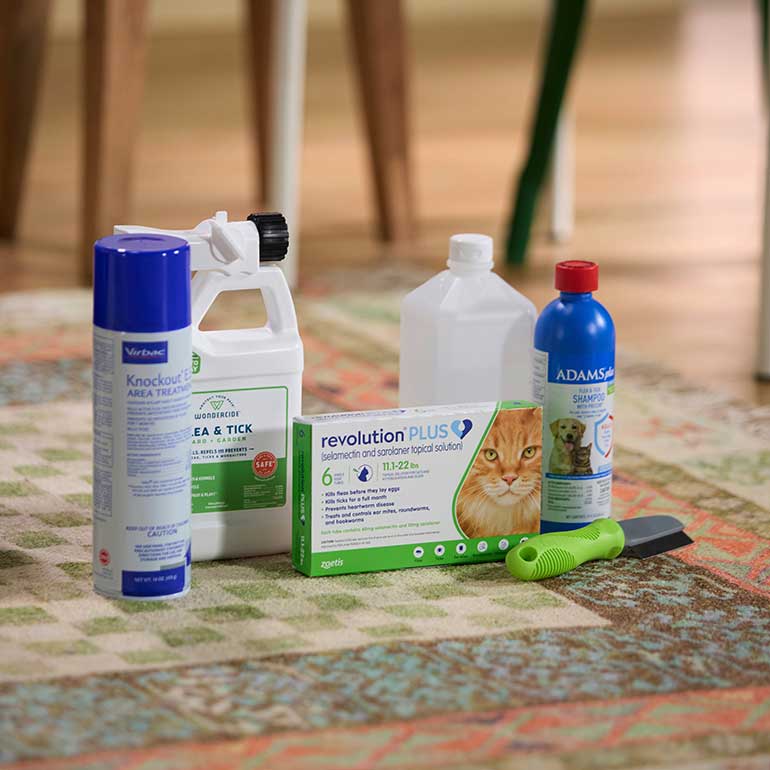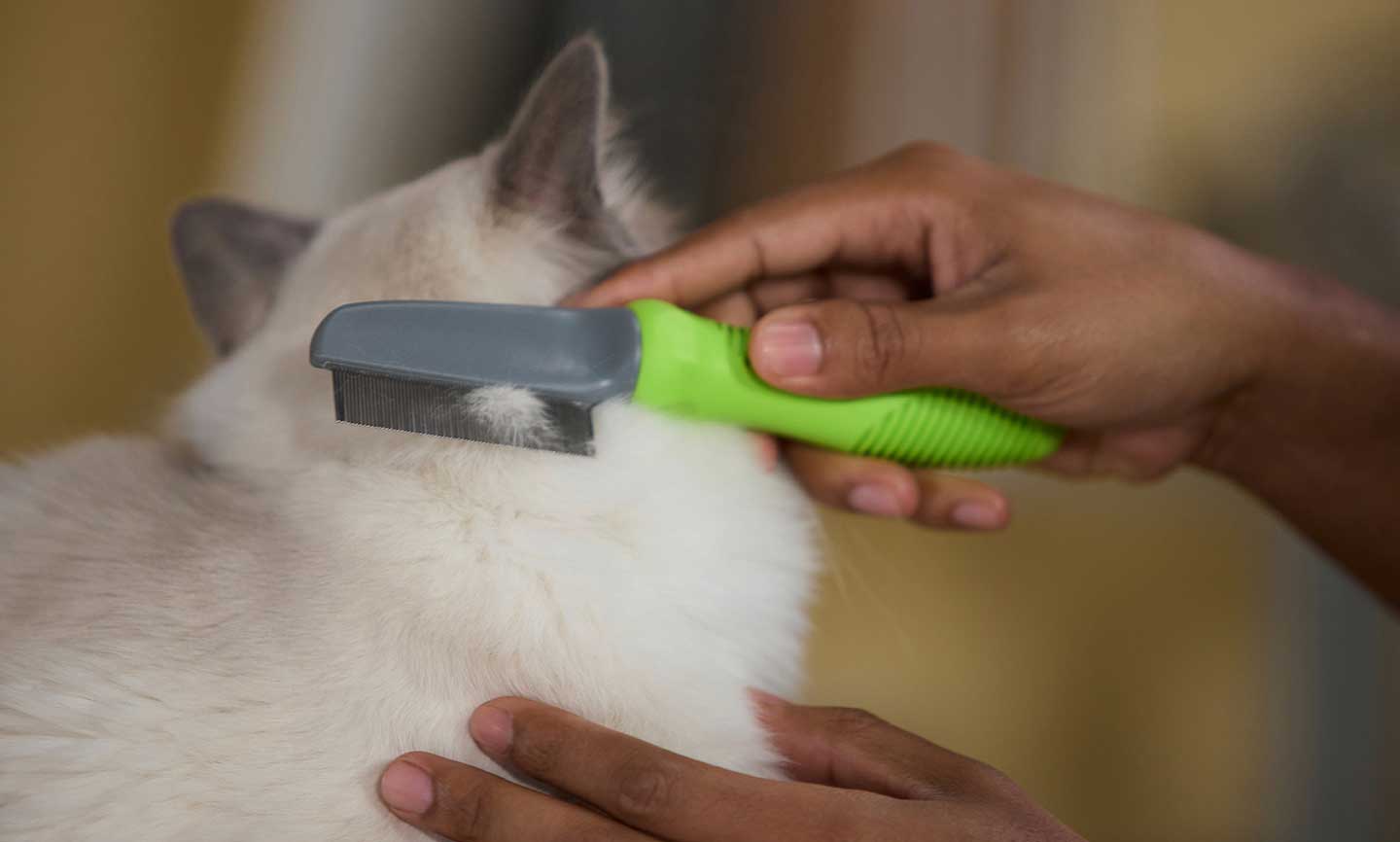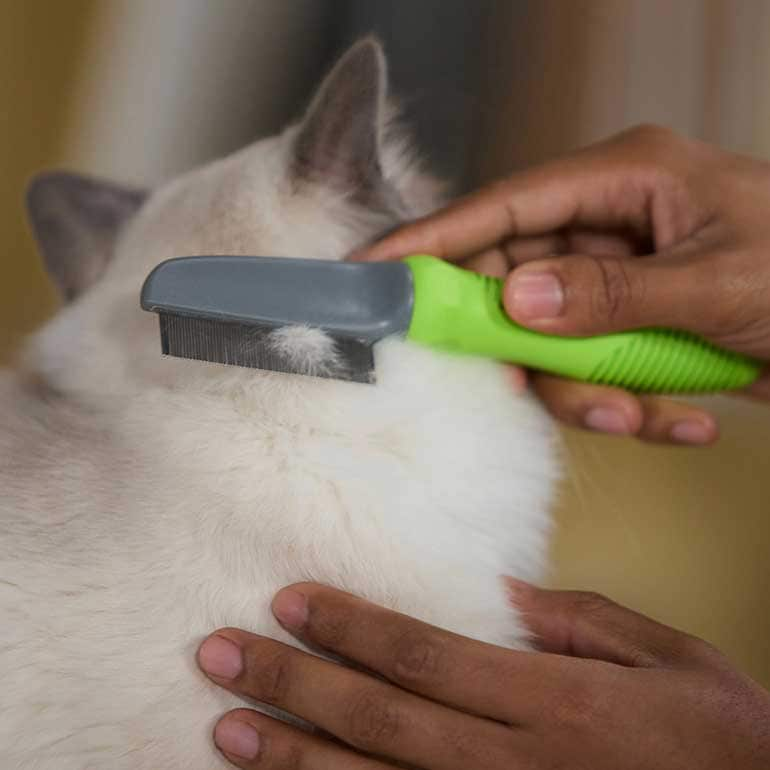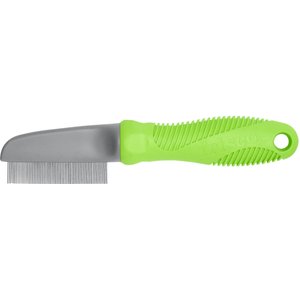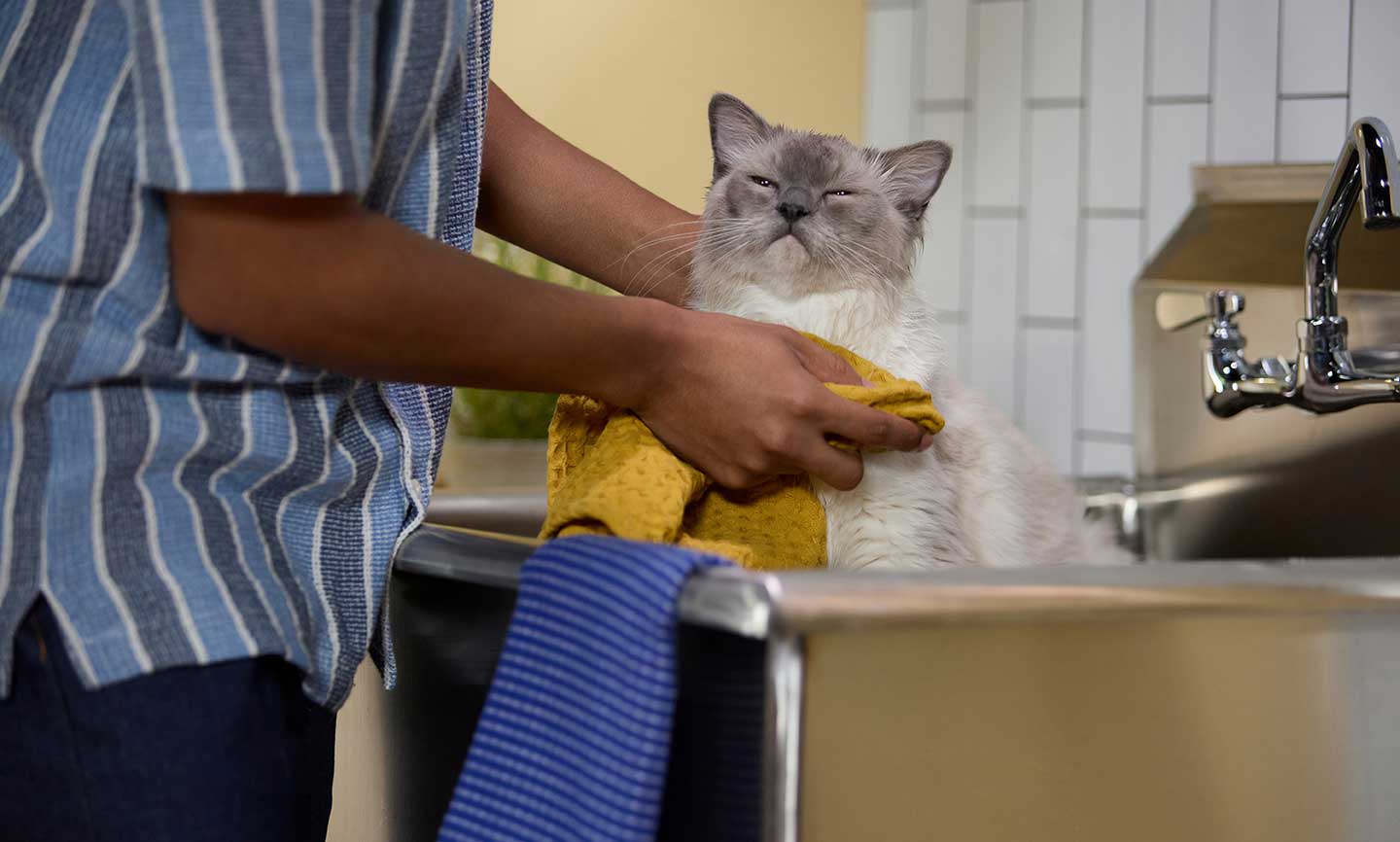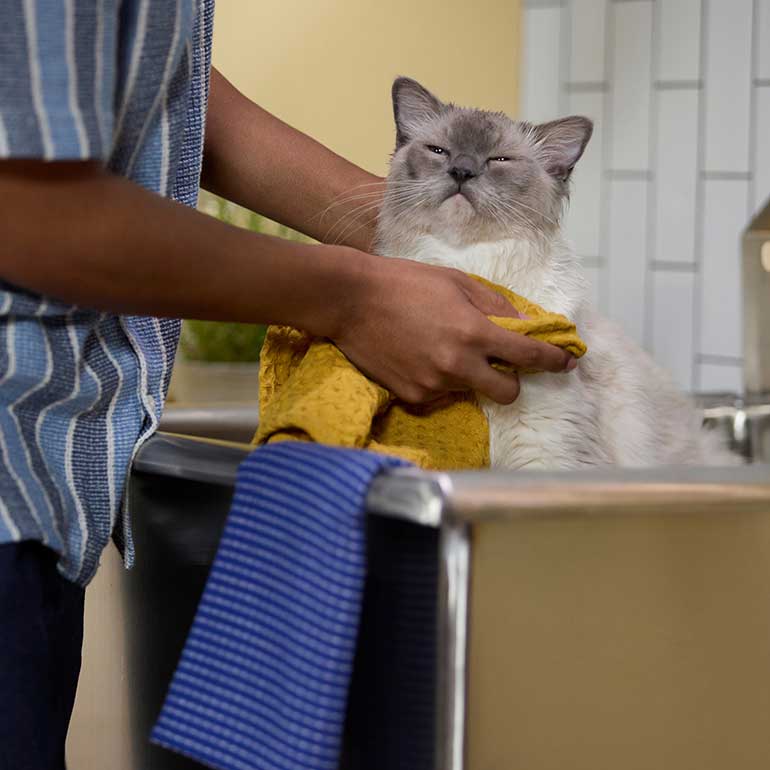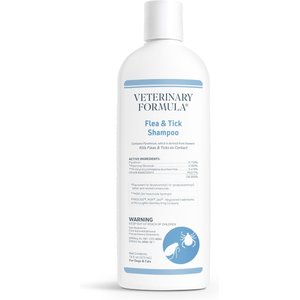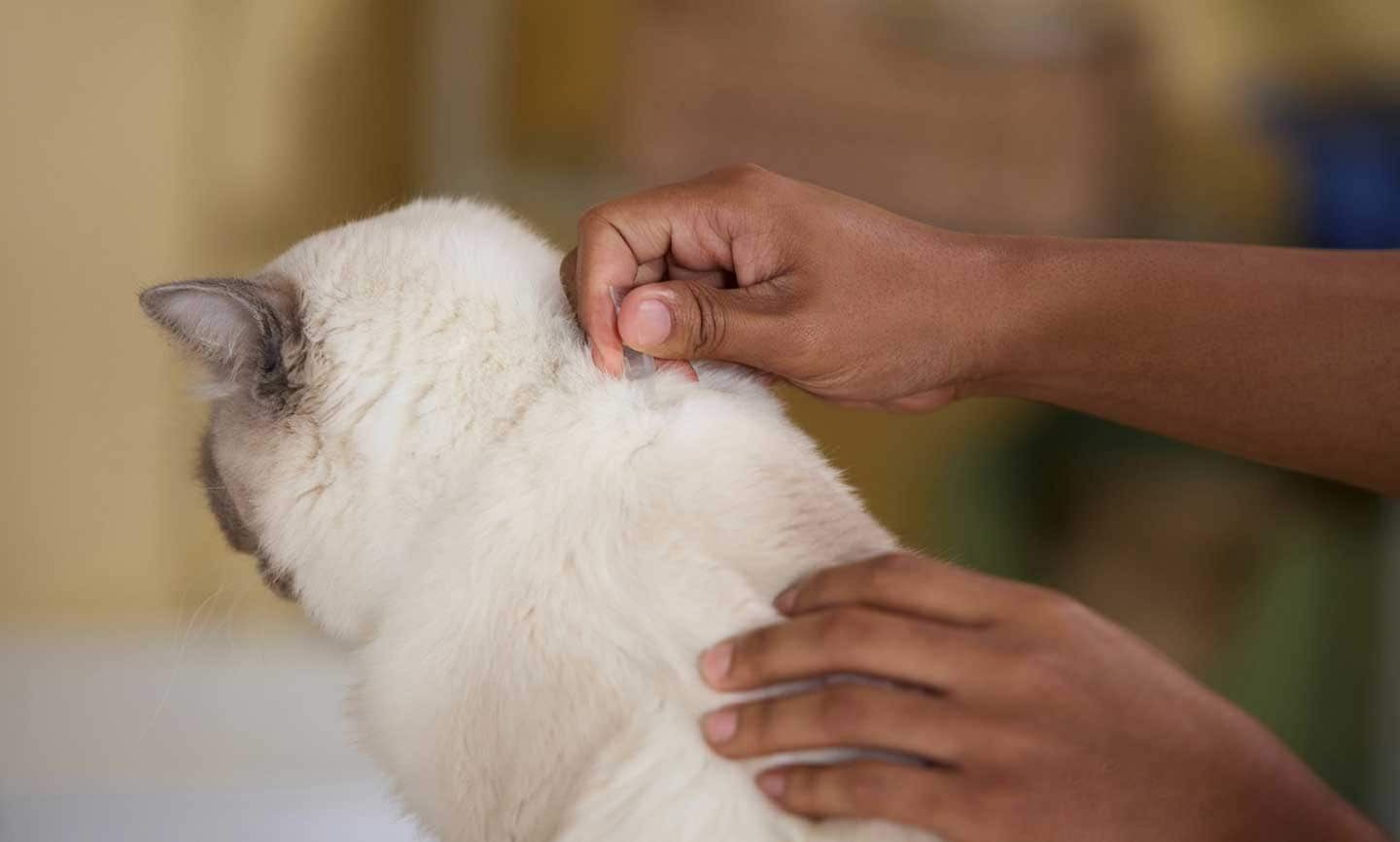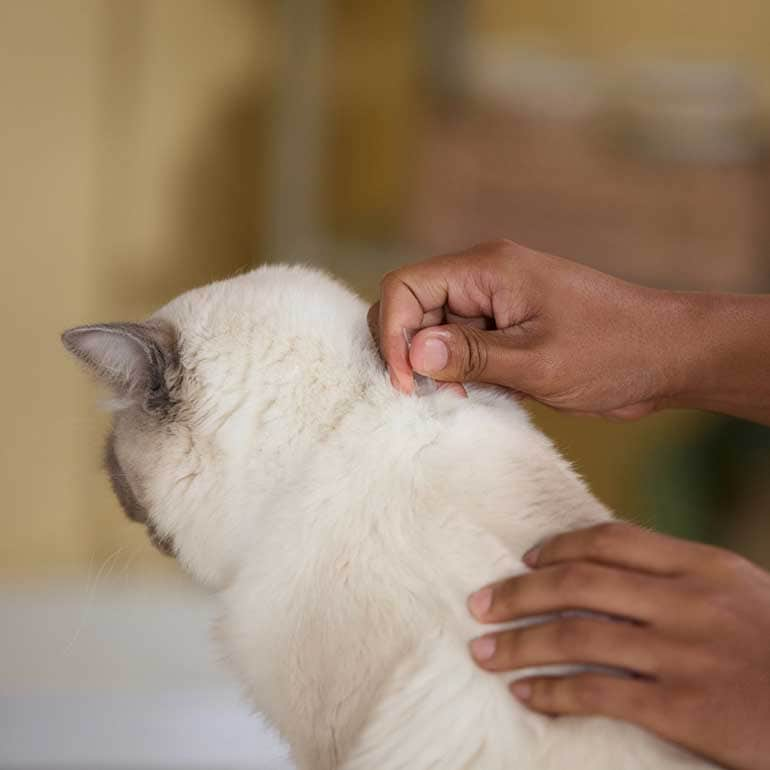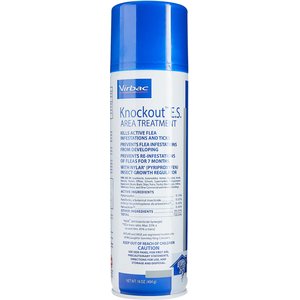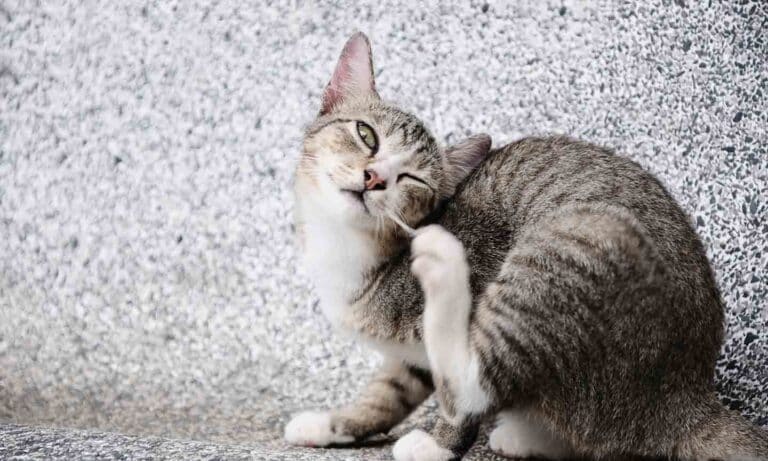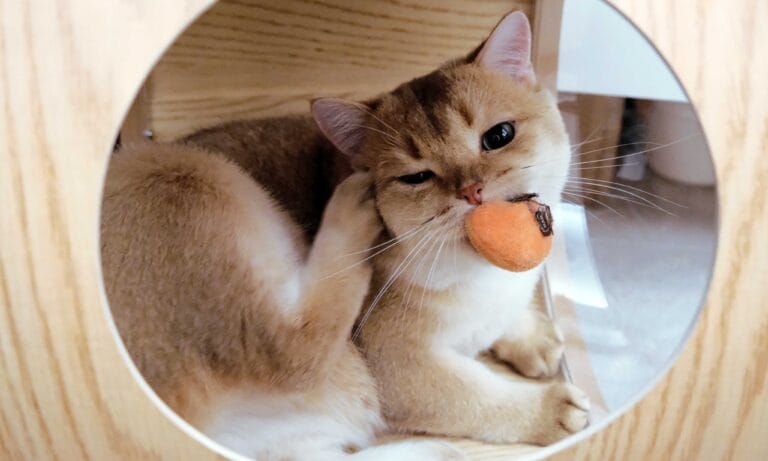Are you worried your cat has a case of fleas? We’ve been there. Cat fleas can be frustrating, stressful and honestly pretty gross—plus, they’re bad for your sweet fur babe’s health and comfort. As grody as cat fleas are, though, know that many pet parents have walked this very same path and that there are steps you can take to tackle this flea problem once and for all.
We spoke to vets for their tips on sending fleas packing—for good. From spotting the signs of fleas to pest-killing tactics and preventing future infestations, we’ve got the lowdown on treating fleas on cats.
In This Guide
Does My Cat Have Fleas?
Common signs your cat has a flea problem include:
- Frequent itching and scratching, especially on their back legs (where fleas love to hide)
- Biting at their skin or fur
- Overgrooming or excessive licking of the skin/fur
- Hair loss, which is often more prevalent on a cat’s back half where fleas tend to congregate
- Skin irritation, redness, open wounds or scabbing
- Flea dirt, aka flea poop, on your cat’s skin. (You can tell the difference between flea dirt and actual dirt by placing the specks on a damp paper towel. If they turn reddish-brown, it’s flea dirt)
- Live adult fleas running and/or jumping through your cat’s fur. These are often easier to spot by combing through your cat’s hair with a flea comb. Find out more about what fleas look like.
- Agitation, restlessness or general discomfort
The Flea Life Cycle
OK, so it might seem strange to focus on the flea’s life cycle when what you really want to know is how to kill these pesky buggers. But there’s good reason to understand the stages of fleas’ lives: Because most flea treatments don’t kill fleas in all of them. That means it’s important to check your flea-killing products to make sure you're targeting each stage.
Here’s how the flea life cycle works:
- Stage 1—Egg: Eggs are laid by female fleas and can lay dormant for days to weeks. They may be laid in your cat’s fur, in the carpet or anywhere else in the house that provides safe refuge. Flea eggs can also transfer from your cat to other pets or parts of the home.
- Stage 2—Larvae: Eggs eventually hatch into flea larvae, which are tiny, transparent and legless creatures. They feed on blood found in flea dirt (aka flea feces), flea eggshells, and other organic matter. Larvae remain in this stage anywhere from one to three weeks before spinning a cocoon around themselves.
- Stage 3—Pupa: Once wrapped into a cocoon, flea larvae become pupa. This life stage is the most resistant to flea control treatments, and what’s worse, pupa can remain dormant for weeks, months and in extreme cases even years before hatching into an adult flea. Typically, they’ll hatch once conditions are warm and humid.
- Stage 4—Adult flea: Fleas in the adult stage are the most obvious—these are the tiny brown insects you might have spotted. This stage can lead to a major boost in future fleas since adult female fleas lay as many as 50 eggs per day.
How to Get Rid of Cat Fleas
Here’s the good news: There are simple steps you can take to get rid of fleas on your cat and in your home. And once you’ve solved your flea problem, you can shift into flea prevention measures to prevent future cases.
Important note: If you have multiple animals, you need to address fleas on all of them. Otherwise, the fleas will just keep moving from animal to animal and you will struggle to get rid of them. Follow these steps with each of your pets to ensure those fleas have nowhere to hide.
1Gather your supplies.
Here’s what you need to treat cat fleas:
- A flea comb
- Rubbing alcohol
- Flea shampoo for cats, or, for cats with irritated skin, a gentler shampoo recommended by your vet
- Flea and tick prevention treatment
- Flea-killing sprays or foggers for the home
- Insecticide spray for the yard
2 Comb your cat with a flea comb.
3 Give your cat a flea bath.
4 Use a flea prevention treatment.
If you’ve fallen behind on your cat’s regular flea and tick prevention treatment, well, there’s no time like the present to get back on track. And if your cat has never used a flea treatment before, consider this your sign to start. These treatments can kill remaining fleas on your cat and prevent future infestations, too.
You have several options when it comes to flea prevention, including:
- Topical flea and tick treatments: These flea control serums are applied directly to your cat’s skin. If you’re using a topical treatment, wait to apply it until after bathing your cat, not before, to avoid accidentally washing away the treatment.
- Oral flea and tick treatments: These preventatives come in pill or chewable form.
Consult with your veterinarian to determine which method is right for your cat.
Whatever flea prevention you choose, stay consistent. Give the medicine at a regular cadence all year round, according to product instructions and your veterinarian’s recommendations. Missing treatments could open the door to future infestations.
Read our guide to the best flea and tick treatment for cats.
5 Treat your home.
Along with tending to your cat—and all other pets in your home—it’s important to take some time to tend to your environment. Take these steps to eliminate fleas in your home:
- Wash all the bedding in your home, along with cat beds, blankets and toys, using hot, soapy water.
- Vacuum all carpeting and upholstery. Immediately empty the vacuum bag or container into the trash and throw the bag away outside. If your vacuum uses a canister, empty it immediately and clean the canister very well according to the vacuum manufacturer’s instructions. Flea eggs can live in the vacuum and hatch and come back out to reinfect the house, so a thorough cleaning is important.
In more extreme cases, you may need to use an insecticide. If that’s the case, follow label instructions carefully and make sure your pets are out of the home for the recommended period of time. You can also hire a professional pest control company to help remove fleas from your home if the flea problem feels out of control.
6 Treat your yard.
If your cat spends time outdoors, there’s a chance your yard may be infested with fleas, too. If you need to treat your yard with insecticide, follow the same rules as with home treatments:
- Remove your pets from your yard before treating it
- Keep your pets out of the area for the product instructions’ recommended amount of time. (Usually, this is until the spray has dried.)
- Once your cat and any other pets are allowed outside, make sure they don’t eat any of the sprayed grass or plants.
A professional pest-control company can be helpful here, too. Just make sure they’re aware that you have a cat and to follow their safety recommendations to protect both the humans and pets in your household from the chemicals they use.
7Repeat all of the above.
Even if it seems like the fleas are gone, it’s important to repeat the above steps every three to four weeks, for the next three to six months, or until you no longer see evidence of fleas in your home or on your cat.
Yes, that might seem like a long time, but removing fleas is often a months-long process because of the flea life cycle. Remember: Larvae laid by adult fleas hatch over the course of three weeks, and when the fleas are in the cocoon (pupa) stage, they can remain dormant for months or even years and are resistant to treatment. Skipping this step makes you vulnerable to future infestations.
The Dangers of Fleas on Cats
Yes, fleas can make you and your cat super-uncomfortable—but that’s just the beginning of the long list of reasons to get rid of them. Fleas can also transmit diseases, including:
- Tapeworms
- Plague
- Typhus
- Mycoplasma
- Cat scratch disease
An infestation can also cause an intense allergic reaction called flea allergy dermatitis in your pet, which typically comes with severe scratching that leads to skin infections and hair loss. Some cats can have an extreme reaction to just a single flea bite. Severe infestations may even lead to anemia, a condition in which your cat lacks enough healthy blood cells. That’s why it’s important to treat flea infestations as soon as you notice the issue.
Cat fleas are both gross and dangerous, but with patience and regular treatment you can get rid of them for good. Need more guidance? Check out our complete guide to flea and tick for your pets and your home.
Expert input provided by Dr. Hunter Finn, DVM, a general practice veterinarian and owner of Pet Method in McKinney, Texas; and Dr. Nicole Savageau, DVM, a veterinarian with The Vets.
This content was medically reviewed by a veterinarian.
Send Those Pests Packing
Share:
